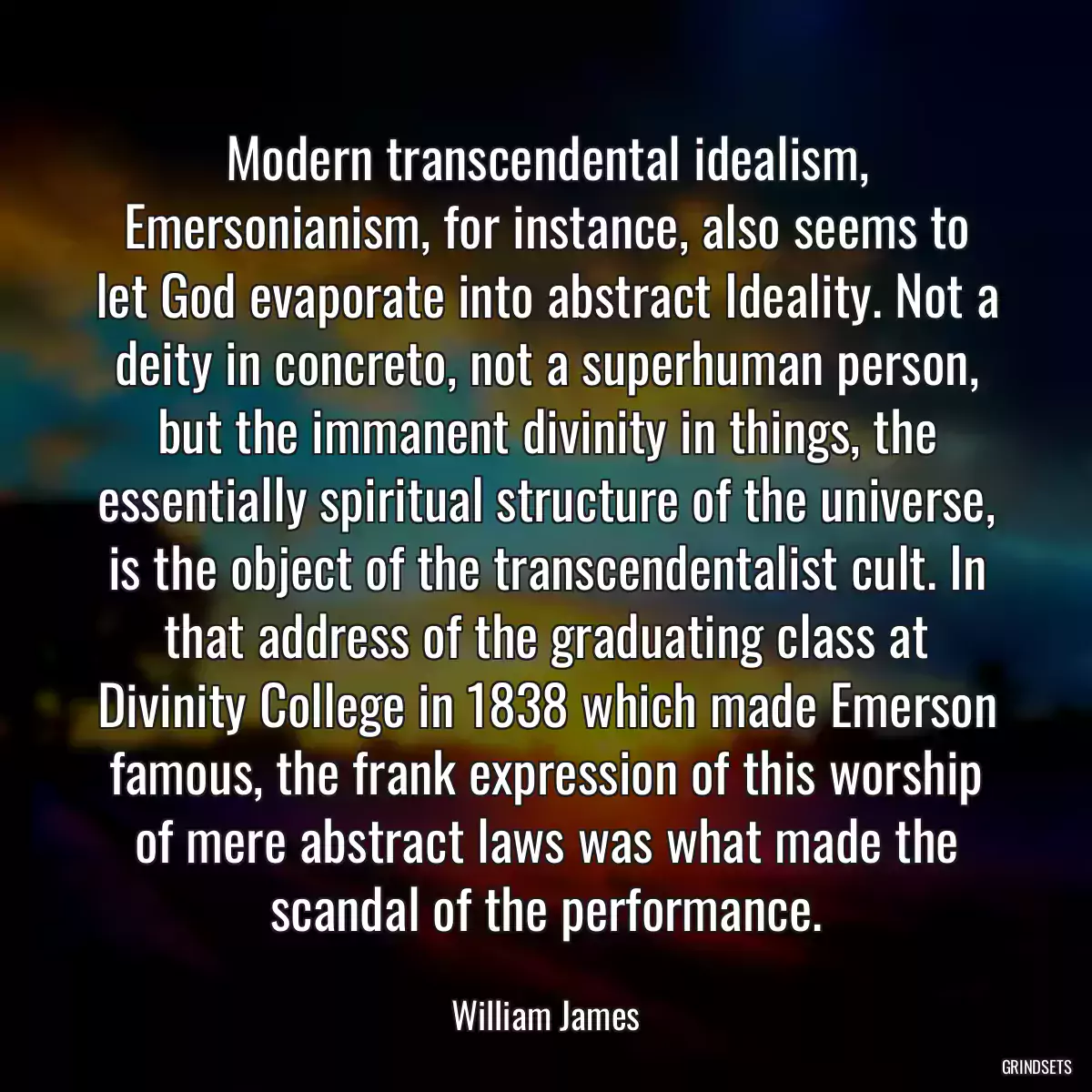
Quotes William James - page 2
Find dozens of William James with images to copy and share.

The greatest discovery of my generation is that a human being can alter his life by altering his attitudes.
Acceptance of what has happened is the first step to overcoming the consequences of any misfortune.
Nothing is so fatiguing as the eternal hanging on of an uncompleted task.
You may also like
Philosophy, beginning in wonder, as Plato and Aristotle said, is able to fancy everything different from what it is. It sees the familiar as if it were strange, and the strange as if it were familiar. It can take things up and lay them down again. It rouses us from our native dogmatic slumber and breaks up our caked prejudices.
The 'I think' which Kant said must be able to accompany all my objects, is the 'I breathe' which actually does accompany them.
The difference between an interesting and a tedious teacher consists in little more than the inventiveness by which the one is able to mediate these associations and connections, and in the dullness in discovering such transitions which the other shows.
The exercise of voluntary attention in the schoolroom must therefore be counted one of the most important points of training that take place there; and the first-rate teacher, by the keenness of the remoter interests which he is able to awaken, will provide abundant opportunities for its occurrence.
Our life is always deeper than we know, is always more divine than it seems, and hence we are able to survive degradations and despairs which otherwise must engulf us.

Your hopes, dreams and aspirations are legitimate. They are trying to take you airborne, above the clouds, above the storms, if you only let them.
Faith is one of the forces by which men live, and the total absence of it means collapse
The absolute things, the last things, the overlapping things, are the truly philosophic concerns; all superior minds feel seriously about them, and the mind with the shortest views is simply the mind of the more shallow man.
The pragmatist turns away from abstraction and insufficiency, from verbal solutions, from bad a priori reasons, from fixed principles, closed systems, and pretended absolutes and origins. He turns toward concreteness and adequacy, towards facts, towards action, and towards power.
What do believers in the Absolute mean by saving that their belief affords them comfort? They mean that since in the Absolute finite evil is ‘overruled’ already, we may, therefore, whenever we wish, treat the temporal as if it were potentially the eternal, be sure that we can trust its outcome, and, without sin, dismiss our fear and drop the worry of our finite responsibility. In short, they mean that we have a right ever and anon to take a moral holiday, to let the world wag in its own way, feeling that its issues are in better hands than ours and are none of our business.
This overcoming of all the usual barriers between the individual and the Absolute is the great mystic achievement. In mystic states we both become one with the Absolute and we become aware of our oneness. This is the everlasting and triumphant mystical tradition, hardly altered by differences of clime or creed.
Our ideas must agree with realities, be such realities concrete or abstract, be they facts or be they principles, under penalty of endless inconsistency and frustration.
The man who knows governments most completely is he who troubles himself least about a definition which shall give their essence. Enjoying an intimate acquaintance with all their particularities in turn, he would naturally regard an abstract conception in which these were unified as a thing more misleading than enlightening.
You may also like

Modern transcendental idealism, Emersonianism, for instance, also seems to let God evaporate into abstract Ideality. Not a deity in concreto, not a superhuman person, but the immanent divinity in things, the essentially spiritual structure of the universe, is the object of the transcendentalist cult. In that address of the graduating class at Divinity College in 1838 which made Emerson famous, the frank expression of this worship of mere abstract laws was what made the scandal of the performance.
Far from being antecedent principles that animate the process, law, language, truth are but abstract names for its results.